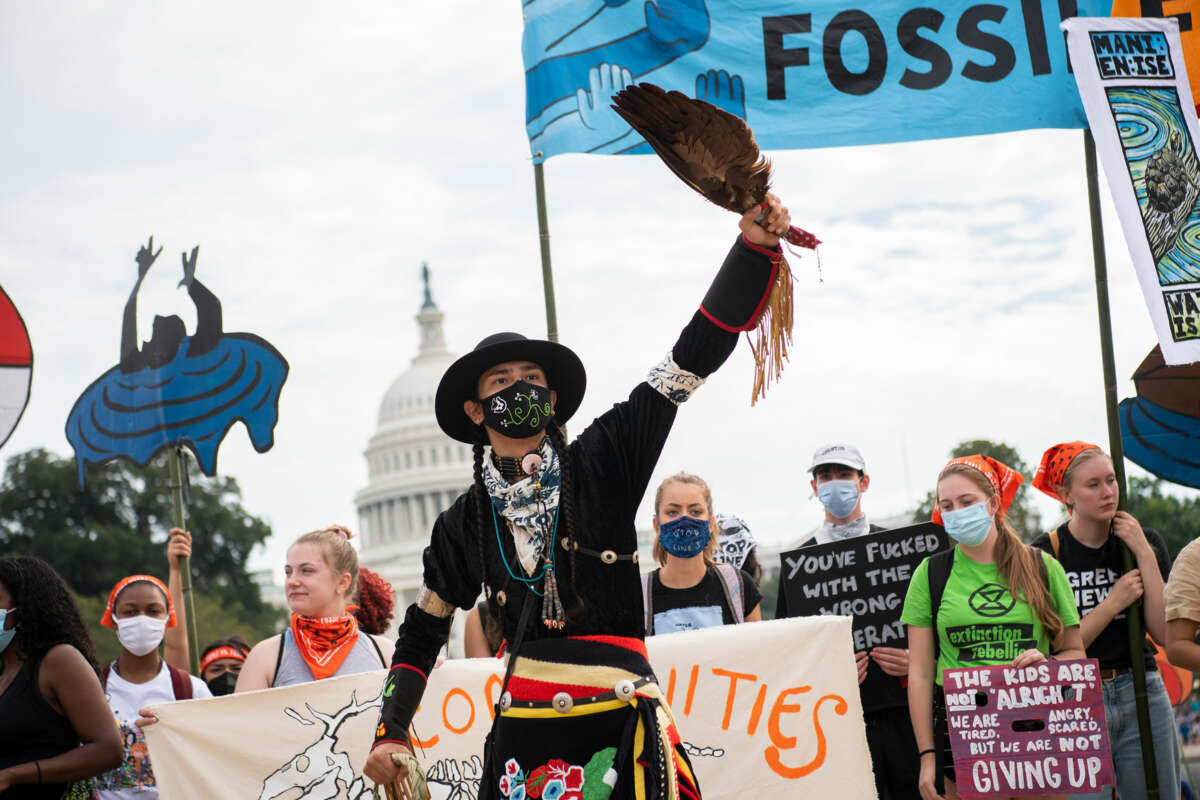Department of Interior regulations ban tribes from re-applying for federal recognition if they were once denied. The rule is in the process of getting changed but too slowly in the view of a Washington D.C. District Court judge. Judge Amy Berman Jackson has told the department it has until the end of August to move on to the next step in rule-making.
Three years ago, Jackson said the rule banning re-petitions was not justified. She called it “arbitrary and capricious” and told the Department of Interior to review it for needed changes. She was the second judge to issue similar findings.
In April 2022, the department published notification that it was seeking public comment and would begin tribal consultations on its decision to maintain the ban.
At a July 18 hearing, Jackson asked the department about its progress in the rule-making. The agency “failed to convey any sense of urgency about issuing the rule, was vague in its responses, and lacked even an estimated timetable for when the final rule would be issued.” On July 19, she set a deadline of Aug. 31 for the department to submit its rule for review by the Office of Information and Regulatory Affairs, the next step toward publishing the final rule.
Jackson issued the decision in a lawsuit against the department filed by the Burt Lake Band of Ottawa and Chippewa Indians. The Michigan-based band said the agency had delayed the rule-making for years.
For more than a century, the Burt Lake Band has been stymied in its efforts to achieve recognition despite having been signatory to two treaties. It ceded seven million acres of land in the Treaty of Washington of 1836 and was promised a 1,000-acre reservation. That land was never conveyed to the band. The tribe was also signatory to the Treaty of Detroit of 1855, which allowed for individual allotments rather than communal reservation lands.
The last time the federal government recognized the band was in 1917, after a local sheriff and land developer evacuated tribal citizens and burned some 20 homes. The band had purchased the land and put it into trust with the state of Michigan. The federal government acknowledged the federal government’s trust responsibility to the band, but said it was not obligated to protect its interests over non-payment of taxes.
In court filings, the tribe said its applications for federal recognition have been met with decades of delays, “non-decisions” and misdirections.
The Interior Department in 2006 denied the tribe’s petition for federal recognition saying it had not met regulatory criteria (Part 83, title 25 CFR).
The department said in court documents that the tribe doesn’t meet the requirement that its members be descendants from an historical Indian tribe that functioned as a single political entity. The agency said the 400-member band also did not show continual existence from historical times to the present. The agency noted that some of the band’s citizens are also enrolled in another tribe.
The band said the Interior Department denied recognition on “subjective, improper and inequitable grounds, notwithstanding the fact that the agency had granted acknowledgment to other equally-situated ‘landless’ Michigan tribes on the very same grounds.”
Several other tribes have been denied federal recognition or had it rescinded, including the Brotherton Indian Nation based in Wisconsin, Lumbee in North Carolina, the Muwekma Ohlone in San Francisco and the Chinook Indian Nation in Washington.
Native American land ownership and sovereignty pre-date the establishment of the United States. Tribal sovereignty exists regardless of any need for U.S. recognition. However, to receive services and programs mandated for Indian tribes under federal law, a tribe must have formal federal recognition.
Join us in defending the truth before it’s too late
The future of independent journalism is uncertain, and the consequences of losing it are too grave to ignore. We have hours left to raise the $12,0000 still needed to ensure Truthout remains safe, strong, and free. Every dollar raised goes directly toward the costs of producing news you can trust.
Please give what you can — because by supporting us with a tax-deductible donation, you’re not just preserving a source of news, you’re helping to safeguard what’s left of our democracy.
